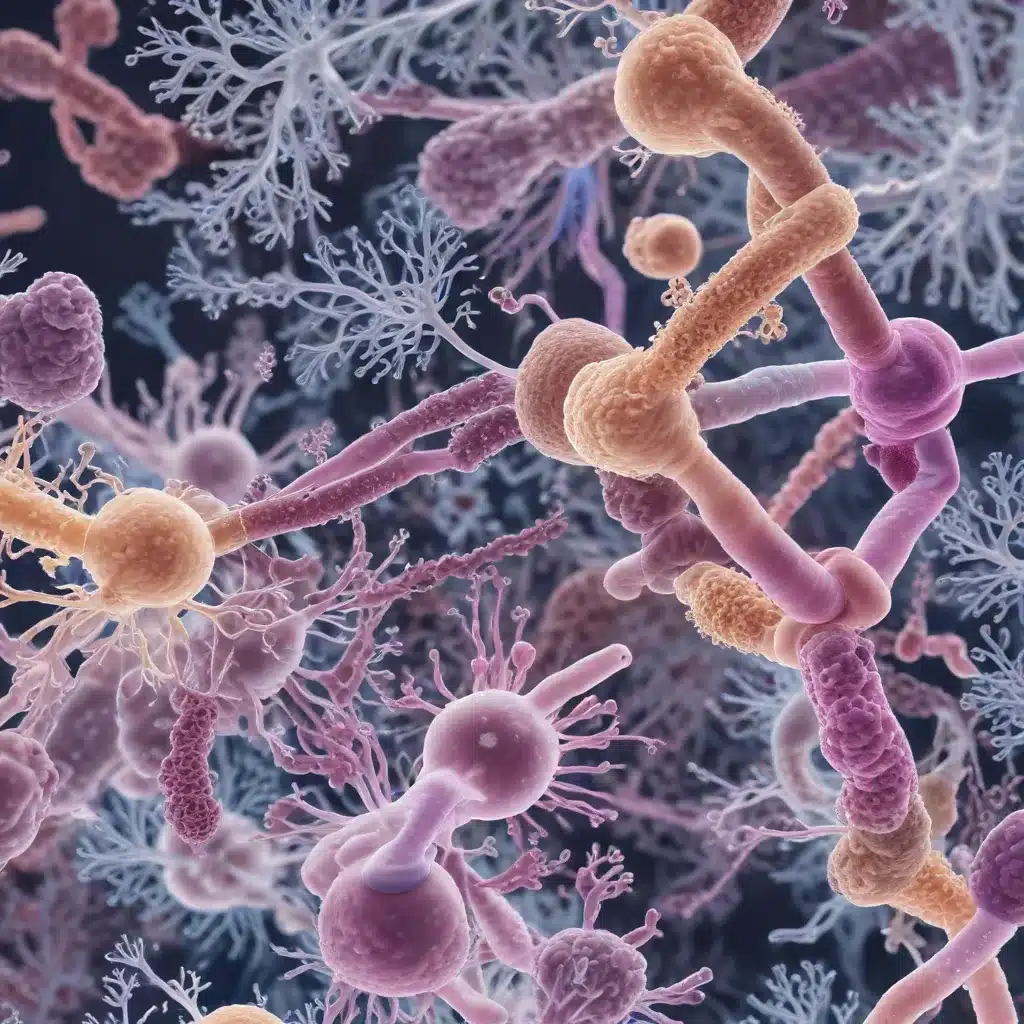
Exploring the Invisible World Within
Our bodies are home to trillions of microorganisms – bacteria, viruses, fungi, and more – that make up our microbiome. This vast and complex ecosystem plays a crucial role in our health and well-being, yet it remains largely unexplored. As researchers delve deeper into the mysteries of the microbiome, they are uncovering groundbreaking discoveries that could revolutionize how we approach everything from fighting disease to improving athletic performance.
At Stanley Park High School, we are excited to share the latest insights from the world of microbiome research and to inspire the next generation of microbiologists and biomedical scientists. Through hands-on projects and collaborations with local universities, our students will have the opportunity to unlock the secrets of the microbiome and contribute to this rapidly advancing field.
Understanding the Microbiome: A Multifaceted Ecosystem
The human microbiome is a complex and dynamic community of microorganisms that reside in various parts of our body, with the gut microbiome being the most extensively studied. These trillions of microbes play a vital role in many of our bodily functions, from digesting food and producing essential nutrients to regulating our immune system and even influencing our mood and behavior.
Researchers at the University of Chicago have been at the forefront of microbiome research, collaborating across disciplines to unravel the secrets of this invisible world. They have discovered that the microbiome can have far-reaching effects, influencing everything from brain health to susceptibility to allergies and even the severity of COVID-19 infections.
“Our microbiome impacts all of our physiology, and when it’s thrown off balance, that will predispose to many different kinds of diseases,” explains Cathryn Nagler, PhD, Bunning Food Allergy Professor at the University of Chicago.
Eugene Chang, MD’76, Martin Boyer Professor of Medicine, has been studying the microbiome’s role in inflammatory bowel diseases for over two decades. His research has revealed how the delicate balance of microbes in the gut can influence our susceptibility to a wide range of conditions, from metabolic disorders to neurological diseases.
Microbiome Research in Action
As the field of microbiome research continues to evolve, researchers are uncovering exciting new applications and opportunities for students and schools to get involved.
Exploring the Gut-Brain Connection
One of the most intriguing areas of microbiome research is the connection between the gut and the brain. Myles Minter, PhD, a postdoctoral scholar in neurobiology at the University of Chicago, has collaborated with researchers from diverse fields, including gastroenterology and marine biology, to investigate the link between gut bacteria and brain health.
Their study, published in the journal Scientific Reports, found that long-term antibiotic use in mice weakened the symptoms of Alzheimer’s disease in the brain, while also causing significant changes in the composition of their gut microbiome. This groundbreaking research highlights the potential for microbiome-based interventions to impact neurological conditions.
Students at Stanley Park High School could explore this gut-brain connection through projects that investigate the role of the microbiome in cognitive function, mood, and neurological disorders. They could design experiments to test the effects of probiotics, dietary changes, or environmental factors on the microbiome and its influence on brain health.
Harnessing the Microbiome to Treat Disease
Researchers are also exploring how the microbiome can be leveraged to treat a variety of diseases, from food allergies to liver disease.
Dr. Holly Arnold, a veterinary clinician-scientist at Oregon State University, is developing computational tools to better understand the specific roles of different microbes in their host organisms. By pinpointing the ecological functions of individual microbes, she hopes to design novel diagnostics and therapies that target the microbiome.
At the University of Chicago, Bhakti Patel, MD, Assistant Professor of Medicine, studied the gut microbiomes of COVID-19 patients in the ICU and found that the composition and metabolites of the microbiome could predict the trajectory of the disease. This research could lead to new interventions that restore a healthy microbiome and improve outcomes for COVID-19 patients.
Students at Stanley Park High could explore these medical applications of microbiome research by designing experiments to test the effects of probiotics or other microbiome-based therapies on different health conditions. They could also investigate the use of microbiome analysis as a diagnostic tool for early detection of diseases.
Monitoring Ecosystem Health with the Microbiome
The microbiome’s influence extends beyond human health and into the natural world. Researchers at the Lawrence Berkeley National Laboratory have developed models that use the genetic information of soil microbes to better understand their role in the global carbon cycle and ecosystem health.
By studying the microbiome of the soil, scientists can gain insights into how different plants and crops interact with microbes to store carbon and support overall soil health. This knowledge can inform agricultural strategies to mitigate climate change and improve the sustainability of our food systems.
Students at Stanley Park High could collaborate with local universities or research institutions to explore the use of the microbiome as a tool for monitoring and maintaining the health of local ecosystems. They could design projects that investigate the microbiome composition of soil, water, or even the built environment, and how it relates to environmental factors and overall ecosystem function.
Getting Involved in Microbiome Research
The world of microbiome research is full of exciting opportunities for students at Stanley Park High School to get involved and make a real impact. Whether you’re interested in the medical applications, the environmental implications, or the fundamental science behind this invisible world, there are countless ways to explore and contribute to this rapidly advancing field.
We encourage all students to visit our school website to learn more about the microbiome research projects and collaborations available, and to reach out to our science department to discuss how you can get involved. Together, we can unlock the secrets of the microbiome and pave the way for a healthier, more sustainable future.

